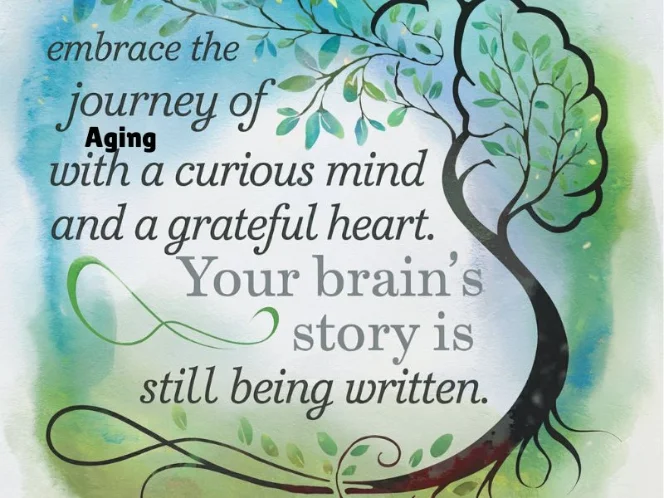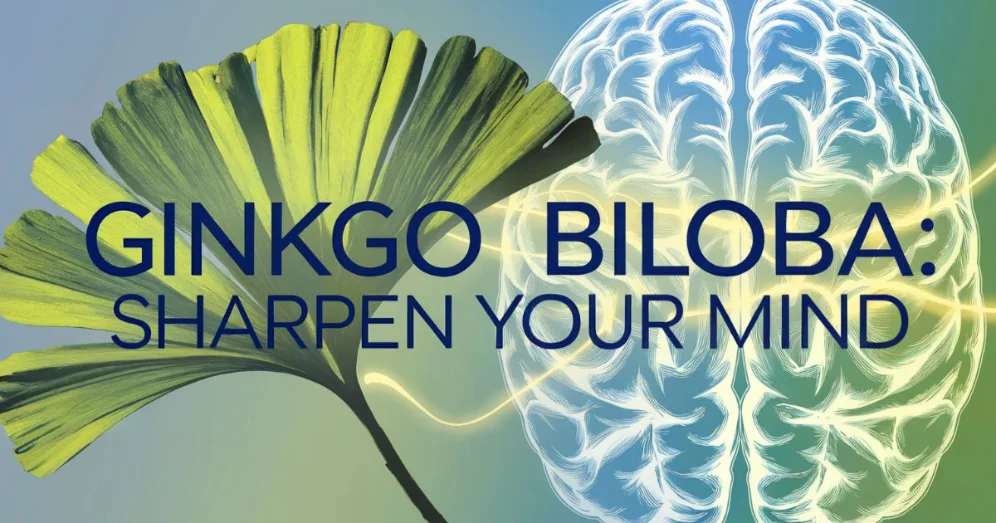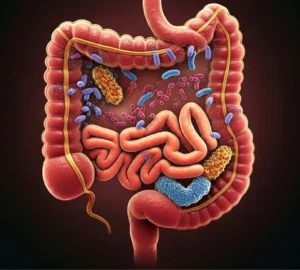Feeling Foggy? Ginkgo Biloba Might Be the Answer
Have you ever walked into a room and completely forgotten why you were there? Or struggled to recall a familiar name during a conversation? If so, you’re not alone. Memory slips and occasional “brain fog” are common experiences as we age. But what if there was a natural way to sharpen your mind and keep those cognitive wheels turning smoothly?

Enter Ginkgo Biloba, an ancient tree extract with a long history of use in traditional medicine for enhancing memory and cognitive function. But does it really live up to the hype? Can Ginkgo Biloba truly improve memory in seniors in 2025? In this in-depth article, we’ll dive into the latest scientific research, explore the potential benefits (and risks), and uncover how this natural remedy might help you maintain a sharp mind as you age.
What We’ll Cover:
- Unveiling the Mystery: What Exactly Is Ginkgo Biloba?
- How It Works: The science behind Ginkgo Biloba’s effects on the brain.
- Memory Booster? Exploring the evidence for Ginkgo and memory enhancement.
- Beyond Recall: Other potential benefits of Ginkgo Biloba for seniors.
- Safety First: Dosage, side effects, and important precautions.
- Supplement Savvy: How to choose the right Ginkgo Biloba product.
- Lifestyle Matters: Combining Ginkgo with brain-boosting habits.

Ready to unlock the secrets of this ancient brain booster? Let’s dive in!
What is Ginkgo Biloba? A Living Fossil with Brain-Boosting Potential

Imagine a tree that has witnessed the rise and fall of dinosaurs, survived ice ages, and even withstood the atomic bombing of Hiroshima. That’s Ginkgo Biloba – a true survivor and one of the oldest living tree species on Earth. Originating in China, this “living fossil” has been revered for centuries for its medicinal properties, particularly its potential to enhance brainpower and promote longevity. But what exactly makes this ancient tree so special? Let’s delve into its botanical wonders.
A Botanical Marvel
Ginkgo Biloba is a unique species with no close living relatives. It’s a deciduous tree with distinctive fan-shaped leaves that turn a beautiful golden yellow in autumn. The tree is dioecious, meaning there are separate male and female trees. The female trees produce fleshy, apricot-like seeds that have a rather pungent odor (often described as smelling like rancid butter!).

While the seeds have been used in traditional Chinese cuisine, it’s the leaves that hold the key to Ginkgo Biloba’s therapeutic benefits. These leaves contain a unique blend of bioactive compounds that have captured the attention of scientists and health enthusiasts alike.
The Power of Flavonoids and Terpenoids
The magic of Ginkgo Biloba lies in its rich concentration of flavonoids and terpenoids. These powerful antioxidants act like tiny superheroes for your brain, protecting it from damage and promoting healthy function.
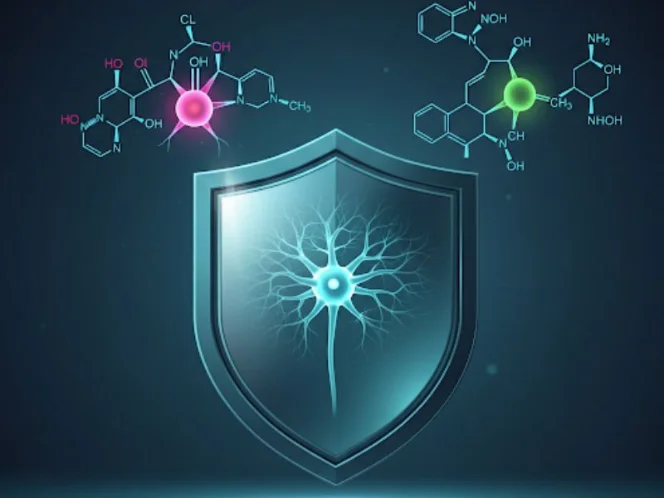
Flavonoids are plant pigments that exhibit potent antioxidant effects. They help neutralize harmful free radicals, which are unstable molecules that can damage cells and contribute to aging and disease. By scavenging these free radicals, flavonoids help protect brain cells from oxidative stress, keeping them healthy and functioning optimally.
Terpenoids, also known as terpenes, are aromatic compounds that contribute to the distinctive scent of many plants, including Ginkgo Biloba. These compounds have been shown to have various health benefits, including anti-inflammatory, anti-cancer, and neuroprotective effects. In Ginkgo Biloba, terpenoids like ginkgolides and bilobalide are thought to play a crucial role in improving blood circulation and protecting the brain from damage.
A Rich History of Traditional Use

Ginkgo Biloba has a long and storied history in traditional Chinese medicine, where it has been used for centuries to treat a variety of ailments. The leaves were traditionally used to improve respiratory function, enhance blood circulation, and address various cognitive concerns.
In ancient texts, Ginkgo Biloba is often referred to as the “tree of long life” and is associated with enhancing vitality and promoting longevity. Modern science is now catching up, with numerous studies exploring the potential benefits of Ginkgo Biloba for cognitive health, cardiovascular health, and overall well-being.
How Does Ginkgo Biloba Work? Unlocking the Secrets of This Brain-Boosting Herb
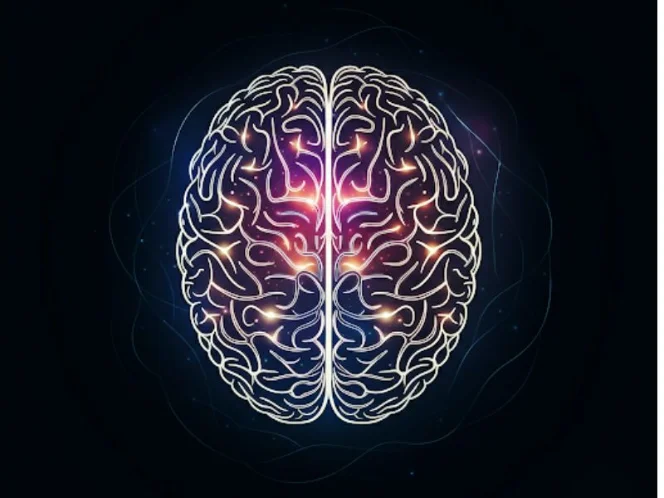
We’ve established that Ginkgo Biloba is a botanical marvel with a rich history. But how exactly does it work its magic on the brain? The answer lies in a fascinating interplay of mechanisms that promote healthy cognitive function. Let’s explore the science behind Ginkgo Biloba’s effects.
Boosting Blood Flow to the Brain
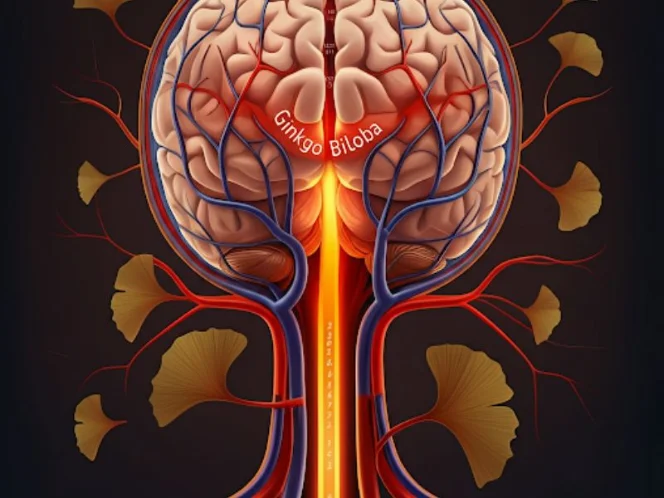
Think of your brain as a high-performance machine that requires a constant supply of oxygen and nutrients to function optimally. Ginkgo Biloba acts as a natural “vasodilator,” meaning it helps widen blood vessels, particularly those in the brain. This improved blood flow allows for greater delivery of oxygen and essential nutrients to brain cells, enhancing their energy production and overall function.
Imagine it like this: Ginkgo Biloba helps clear the traffic jams in your brain’s intricate network of blood vessels, allowing for a smoother and more efficient flow of vital resources. This improved circulation is crucial for maintaining cognitive health and preventing age-related decline.
Shielding Brain Cells with Antioxidant Power
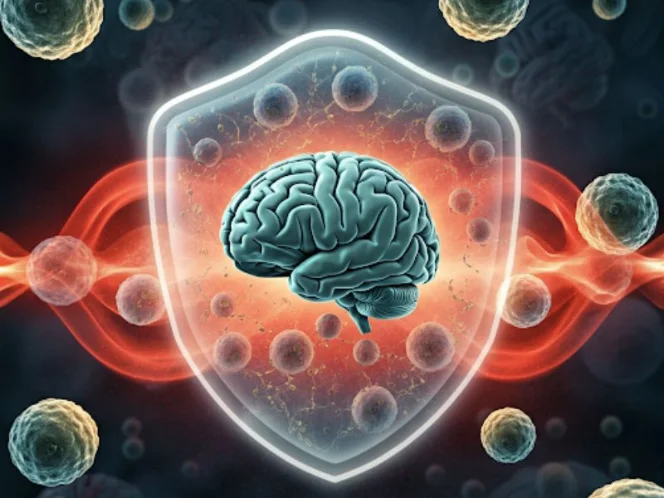
As we age, our brains become increasingly vulnerable to oxidative stress – damage caused by unstable molecules called free radicals. These free radicals can wreak havoc on brain cells, contributing to cognitive decline and neurodegenerative diseases.
This is where Ginkgo Biloba’s potent antioxidant properties come into play. The flavonoids and terpenoids in Ginkgo Biloba act like scavengers, neutralizing free radicals and protecting brain cells from oxidative damage. This protective effect helps maintain the integrity of brain cells and supports healthy cognitive function.
Think of it as Ginkgo Biloba providing a “force field” around your brain cells, shielding them from the harmful effects of free radicals and preserving their ability to function optimally.
Influencing Neurotransmitter Activity
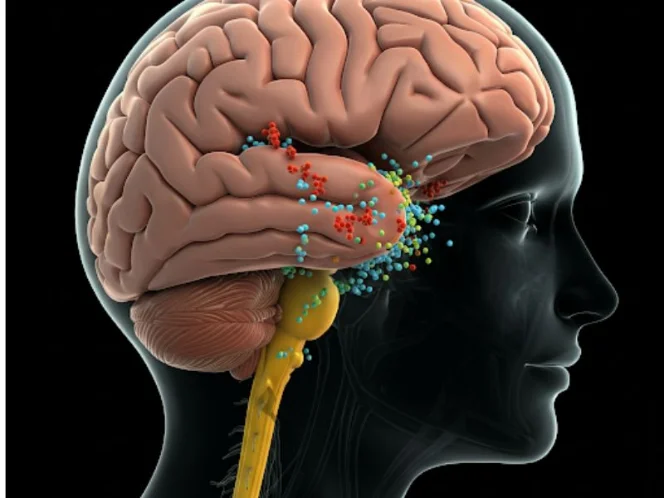
Neurotransmitters are chemical messengers that play a crucial role in communication between brain cells. They are involved in various cognitive processes, including memory, learning, mood regulation, and attention.
While research is ongoing, there’s evidence to suggest that Ginkgo Biloba may influence the activity of certain neurotransmitters. For example, it may help increase levels of acetylcholine, a neurotransmitter essential for memory and learning. It may also impact levels of dopamine and serotonin, which are involved in mood regulation and emotional well-being.
By modulating neurotransmitter activity, Ginkgo Biloba may contribute to improved cognitive function, enhanced mood, and reduced anxiety. However, more research is needed to fully understand the complex interactions between Ginkgo Biloba and neurotransmitters.
Ginkgo Biloba and Memory Enhancement: Can This Ancient Herb Really Boost Brainpower?
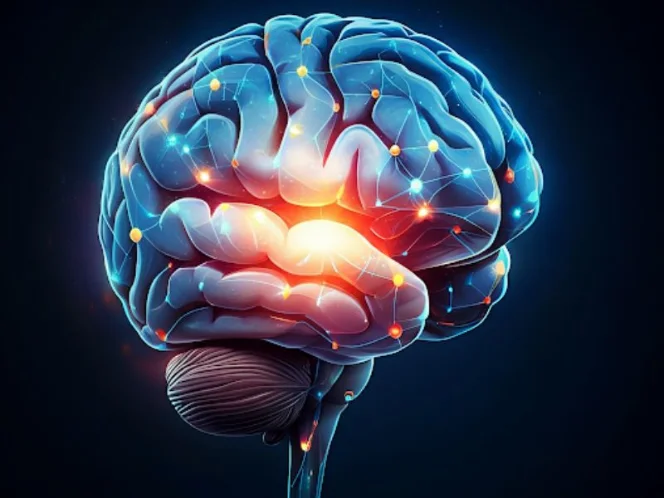
Now, let’s get to the heart of the matter: Can Ginkgo Biloba truly sharpen your memory? While the answer isn’t a simple yes or no, there’s compelling evidence suggesting that this ancient herb may indeed hold the key to unlocking greater cognitive potential, especially as we age.
Sharpening Memory Recall

One of the most promising benefits of Ginkgo Biloba is its potential to enhance memory recall. Numerous studies have explored this connection, with some indicating that Ginkgo Biloba may improve various aspects of memory, including:
- Working memory: This is the type of memory that allows you to hold information in your mind for short periods, like remembering a phone number or following instructions.
- Long-term memory: This involves storing and retrieving information over longer periods, such as remembering past events or learned knowledge.
- Spatial memory: This relates to your ability to remember locations and navigate your surroundings.
While the exact mechanisms are still being investigated, it’s thought that Ginkgo Biloba’s effects on blood circulation, antioxidant activity, and neurotransmitter influence all contribute to its memory-enhancing potential.
Slowing Cognitive Decline
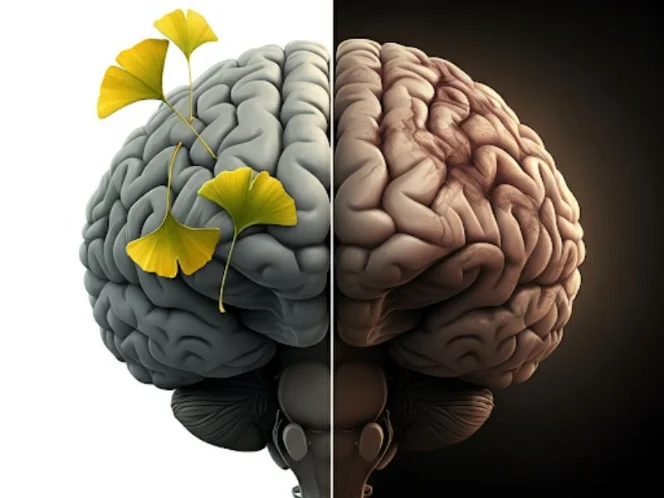
As we age, it’s natural for our cognitive function to decline gradually. This can manifest as forgetfulness, difficulty concentrating, and slower mental processing speed. However, Ginkgo Biloba may offer a protective effect against age-related cognitive decline.
Studies suggest that Ginkgo Biloba may help preserve cognitive function and slow the progression of age-related decline. This is likely due to its ability to protect brain cells from damage, enhance blood flow to the brain, and support healthy neurotransmitter activity.
Potential Benefits for Dementia and Alzheimer’s

Dementia and Alzheimer’s disease are devastating conditions that affect millions of seniors worldwide. While there’s no cure, research suggests that Ginkgo Biloba may offer some benefits in managing these conditions.
Some studies have indicated that Ginkgo Biloba may help improve cognitive function, reduce behavioral symptoms, and enhance the quality of life in individuals with dementia. However, it’s important to note that the evidence is still somewhat mixed, and more research is needed to confirm its efficacy.
Key Takeaways: Ginkgo Biloba for Cognitive Health
- Neuroprotective effects: Ginkgo Biloba’s antioxidants protect brain cells from damage, promoting healthy brain aging.
- Cognitive function support: It may enhance various aspects of cognitive function, including memory, attention, and processing speed.
- Potential for slowing decline: Ginkgo Biloba may help slow the progression of age-related cognitive decline and offer support for those with dementia.
It’s important to remember that while Ginkgo Biloba shows promise for supporting cognitive health, it’s not a magic bullet. It’s most effective when combined with a healthy lifestyle that includes a balanced diet, regular exercise, and mental stimulation.
Beyond Memory: Other Perks of Ginkgo Biloba for Seniors

While Ginkgo Biloba is often touted for its memory-enhancing effects, its potential benefits extend far beyond just cognitive function. This versatile herb may offer a variety of perks for seniors seeking to enhance their overall well-being.
Mood Enhancement and Anxiety Reduction

Feeling stressed, anxious, or a bit down? Ginkgo Biloba might be able to help. Some studies suggest that Ginkgo Biloba may have mood-boosting and anxiety-reducing effects. It’s thought that this may be due to its influence on neurotransmitter activity, particularly its potential to increase levels of serotonin and dopamine, which are involved in mood regulation.
While more research is needed to fully understand these effects, anecdotal evidence and preliminary studies suggest that Ginkgo Biloba may be a valuable natural remedy for promoting emotional well-being in seniors.
Addressing Common Concerns

Ginkgo Biloba has also been traditionally used to address various health concerns that are common among seniors. While research is ongoing, some evidence suggests that Ginkgo Biloba may be helpful for:
- Dizziness and vertigo: Ginkgo Biloba’s ability to improve blood circulation may help alleviate dizziness and vertigo, which are often caused by reduced blood flow to the inner ear.
- Tinnitus (ringing in the ears): Some studies suggest that Ginkgo Biloba may help reduce the severity of tinnitus, although the evidence is mixed.
- Vision problems: Ginkgo Biloba’s antioxidant properties may help protect eye health and potentially slow the progression of age-related macular degeneration.
It’s important to note that these are just a few of the potential benefits of Ginkgo Biloba beyond memory enhancement. Research is ongoing, and new applications for this versatile herb are continually being explored.
Answering Your Questions About Ginkgo Biloba

We understand you may have some questions about Ginkgo Biloba, so let’s address some common queries:
“Does Ginkgo Biloba really work for memory?”
As we’ve discussed, while not a magic cure, Ginkgo Biloba shows promising evidence for enhancing memory recall, particularly in certain types of memory and specific populations. Its effects on blood circulation, antioxidant activity, and neurotransmitter influence all contribute to its potential cognitive benefits.
“What is the best Ginkgo Biloba for seniors?”
Choosing the right Ginkgo Biloba supplement can be tricky. Look for standardized extracts with guaranteed potency of active compounds (flavonoids and terpenoids). Consider factors like quality, purity, and third-party testing. We’ll discuss this in more detail later in the article.
“Is Ginkgo Biloba safe for everyone?”
While generally safe, Ginkgo Biloba can interact with certain medications and may cause side effects in some individuals. It’s crucial to consult your doctor before taking Ginkgo Biloba, especially if you have existing health conditions or are taking other medications.
Dosage and Safety Considerations: Using Ginkgo Biloba Wisely

While Ginkgo Biloba offers a range of potential benefits, it’s essential to approach its use with caution and awareness. Like any supplement or medication, Ginkgo Biloba can have side effects and interact with other medications. This section will provide guidelines for safe and responsible use.
Recommended Dosage: Finding the Right Balance
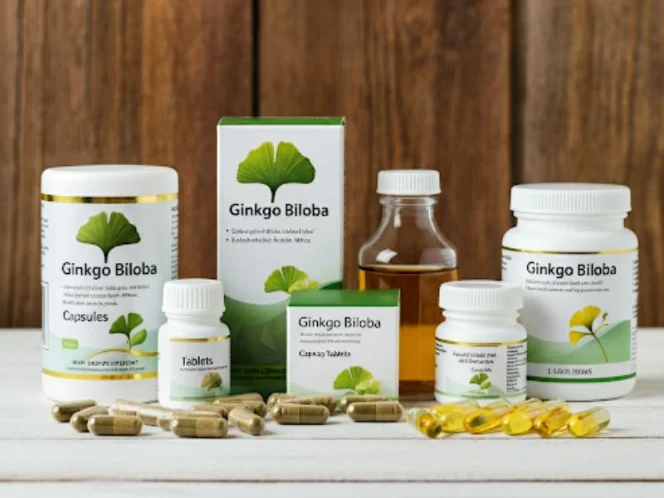
Determining the optimal dosage of Ginkgo Biloba can depend on various factors, including your age, health condition, and the specific formulation of the supplement. However, here are some general guidelines for seniors:
- Standardized Extract: Always choose a standardized extract that guarantees a consistent amount of active compounds (typically 24% flavonoids and 6% terpenoids).
- Typical Dosage: A common dosage range for seniors is 120-240 mg per day, often divided into two or three doses.
- Starting Low: It’s generally advisable to start with a lower dose and gradually increase it as needed, while monitoring for any side effects.
Remember that these are general guidelines, and it’s crucial to consult your doctor to determine the most appropriate dosage for your individual needs.
Potential Side Effects: What to Watch Out For

While Ginkgo Biloba is generally well-tolerated, some individuals may experience mild side effects. These can include:
- Gastrointestinal issues: Upset stomach, nausea, diarrhea, or constipation.
- Headaches: Mild headaches or dizziness.
- Allergic reactions: Skin rashes or itching.
- Bleeding: In rare cases, Ginkgo Biloba may increase the risk of bleeding, especially if you’re taking blood-thinning medications.
If you experience any side effects, discontinue use and consult your doctor.
Drug Interactions: Be Aware of Potential Conflicts
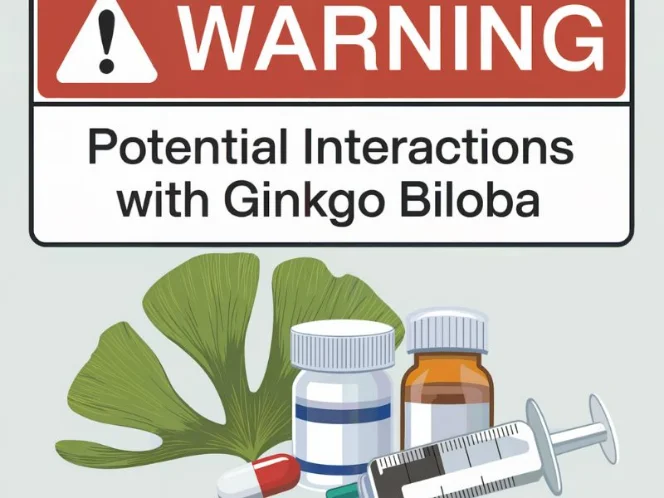
Ginkgo Biloba can interact with certain medications, potentially increasing or decreasing their effects. It’s particularly important to be cautious if you’re taking:
- Blood thinners: Ginkgo Biloba may increase the risk of bleeding when taken with blood thinners like warfarin (Coumadin) or aspirin.
- Antidepressants: Ginkgo Biloba may interact with certain antidepressants, potentially affecting their efficacy or increasing the risk of side effects.
- Diabetes medications: Ginkgo Biloba may affect blood sugar levels, so caution is advised if you’re taking diabetes medications.
This is not an exhaustive list, so always inform your doctor about all medications and supplements you’re taking before starting Ginkgo Biloba.
Safety Precautions: Prioritize Your Health

To ensure safe and effective use of Ginkgo Biloba, follow these precautions:
- Consult your doctor: Always talk to your doctor before taking Ginkgo Biloba, especially if you have any health conditions, are taking medications, are pregnant or breastfeeding, or are planning surgery.
- Follow dosage instructions: Adhere to the recommended dosage and do not exceed the suggested amount.
- Monitor for side effects: Pay attention to any unusual symptoms and discontinue use if you experience any adverse reactions.
- Choose reputable brands: Select high-quality Ginkgo Biloba supplements from reputable brands that prioritize standardization, purity, and third-party testing.
By following these guidelines and prioritizing open communication with your healthcare provider, you can safely explore the potential benefits of Ginkgo Biloba and support your cognitive health.
Choosing the Right Ginkgo Biloba Supplement: A Buyer’s Guide

Navigating the supplement aisle can feel overwhelming, especially with the sheer number of Ginkgo Biloba products available. But fear not! This section will equip you with the knowledge to make informed choices and select a high-quality supplement that meets your needs.
Standardized Extracts: Ensuring Potency and Consistency
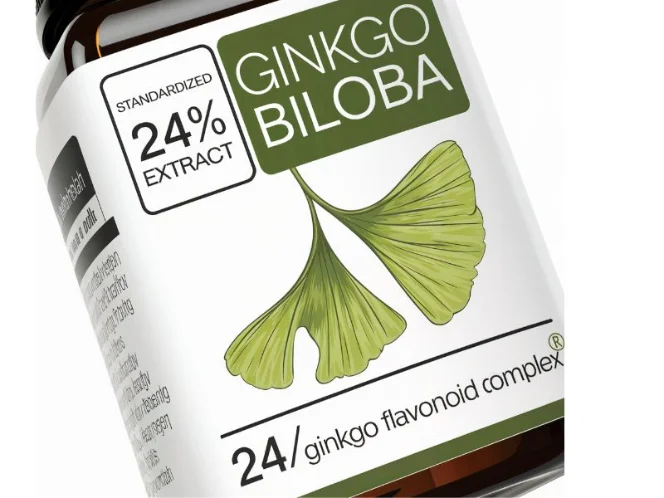
Not all Ginkgo Biloba supplements are created equal. To ensure you’re getting a potent and reliable product, look for the term “standardized extract” on the label. Standardization means that the supplement has been carefully processed to guarantee a specific concentration of the active compounds – flavonoids (typically 24%) and terpenoids (typically 6%).
Why is standardization crucial? It ensures that each dose contains a consistent amount of these beneficial compounds, maximizing the supplement’s effectiveness. Without standardization, the potency can vary significantly between different products and even different batches of the same product.
Quality and Purity: Factors to Consider

Beyond standardization, several other factors contribute to the quality and purity of a Ginkgo Biloba supplement. Consider these points when making your selection:
- Reputable Brands: Choose products from well-established brands with a strong reputation for quality and transparency.
- Third-Party Testing: Look for supplements that have undergone independent third-party testing to verify their purity, potency, and safety.
- Ingredient Sourcing: Consider brands that source their Ginkgo Biloba from reputable growers and use sustainable harvesting practices.
- Manufacturing Practices: Opt for supplements manufactured in facilities that adhere to Good Manufacturing Practices (GMP) to ensure quality control.
By prioritizing quality and purity, you can be confident that you’re getting a safe and effective Ginkgo Biloba supplement.
Different Forms: Capsules, Tablets, and Liquids
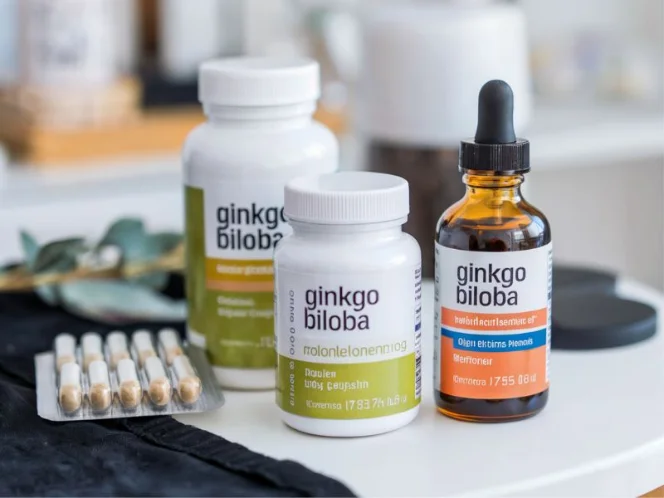
Ginkgo Biloba supplements come in various forms, each with its own advantages and disadvantages:
- Capsules: These are the most common form and are generally convenient and easy to swallow.
- Tablets: Similar to capsules, tablets offer a convenient way to take Ginkgo Biloba.
- Liquid Extracts: These may be absorbed more quickly but can have a stronger taste and may be less convenient to take.
The choice often comes down to personal preference. Consider factors like ease of use, dosage flexibility, and any taste preferences you may have.
Reputable Brands and Extracts
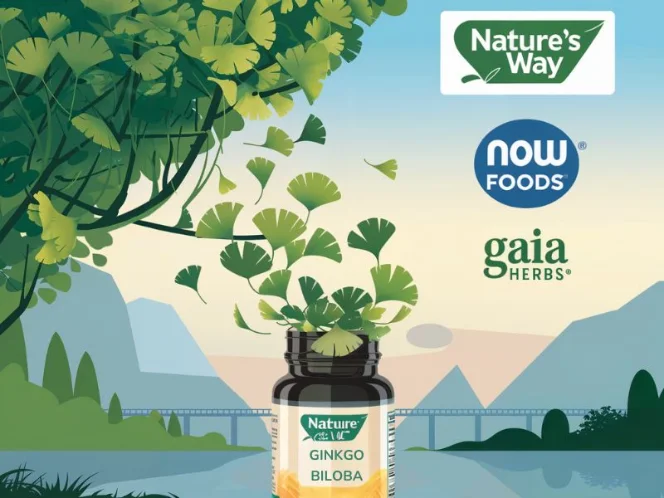
While many brands offer Ginkgo Biloba supplements, here are a few that are generally well-regarded:
- Nature’s Way: Known for its high-quality herbal supplements, including standardized Ginkgo Biloba extracts.
- Now Foods: Offers a wide range of affordable and high-quality supplements, including Ginkgo Biloba in various forms.
- Gaia Herbs: Focuses on organic and sustainably sourced herbs, including Ginkgo Biloba.
Remember that this is not an exhaustive list, and it’s essential to do your own research and compare products based on the factors discussed above.
Lifestyle Factors for Brain Health: It’s Not Just About Supplements

While Ginkgo Biloba can be a valuable tool for supporting brain health, it’s not a magic bullet. To truly optimize your cognitive function and maintain a sharp mind as you age, it’s essential to adopt a holistic approach that incorporates healthy lifestyle habits.
The Power of a Holistic Approach

Think of your brain health as a puzzle with multiple interconnected pieces. Ginkgo Biloba is one piece of the puzzle, but other lifestyle factors play equally important roles. By addressing these factors, you create a synergistic effect that amplifies the benefits of Ginkgo Biloba and supports overall well-being.
This holistic approach recognizes that your physical health, mental well-being, and social connections all contribute to a healthy brain. It’s about creating a lifestyle that nourishes your mind, body, and soul.
Fueling Your Brain with a Healthy Diet

The food you eat provides the building blocks and fuel for your brain. A balanced diet rich in brain-boosting nutrients is crucial for optimal cognitive function. Focus on incorporating these elements into your meals:
- Fruits and vegetables: Packed with antioxidants that protect brain cells from damage.
- Omega-3 fatty acids: Found in fatty fish like salmon, these healthy fats are essential for brain structure and function.
- Whole grains: Provide a steady source of energy for the brain.
- Lean protein: Supports neurotransmitter production and cognitive processes.
By nourishing your brain with a wholesome diet, you provide it with the resources it needs to thrive.
Moving Your Body for a Sharper Mind

Regular physical activity isn’t just good for your body; it’s also a powerful brain booster. Exercise increases blood flow to the brain, stimulates the growth of new brain cells, and enhances cognitive function.
Aim for at least 30 minutes of moderate-intensity exercise most days of the week. Choose activities you enjoy, whether it’s brisk walking, dancing, swimming, or gardening.
Keeping Your Mind Engaged and Challenged

Just like your body, your brain needs regular exercise to stay sharp. Engage in mentally stimulating activities that challenge your cognitive abilities and promote neuroplasticity – the brain’s ability to adapt and form new connections.
Here are some ideas:
- Read books and articles: Expand your knowledge and vocabulary.
- Solve puzzles and play games: Challenge your problem-solving skills and strategic thinking.
- Learn a new language or skill: Stimulate your brain with novel experiences.
- Engage in creative pursuits: Express yourself through art, music, or writing.
By keeping your mind active and engaged, you promote cognitive flexibility and resilience.
Managing Stress for a Calmer Mind

Chronic stress can take a toll on your brain health, impairing memory, and increasing the risk of cognitive decline. Incorporating stress management techniques into your daily routine is crucial for maintaining a healthy mind.
Consider these practices:
- Mindfulness meditation: Cultivate present moment awareness and reduce stress reactivity.
- Deep breathing exercises: Calm your nervous system and promote relaxation.
- Yoga and tai chi: Combine physical movement with mindfulness and stress reduction.
- Spending time in nature: Reconnect with the natural world and reduce stress levels.
By managing stress effectively, you create a more supportive environment for your brain to thrive.
Unlocking Your Brain’s Potential: Embrace a Holistic Approach to Cognitive Health

As we’ve explored throughout this article, Ginkgo Biloba offers a fascinating array of potential benefits for seniors seeking to enhance their memory and cognitive function. From boosting blood circulation and protecting brain cells to potentially slowing cognitive decline, this ancient herb holds promise for supporting brain health in the years to come.
But remember, Ginkgo Biloba is just one piece of the puzzle. To truly unlock your brain’s potential and maintain a sharp mind as you age, it’s essential to embrace a holistic approach that encompasses various lifestyle factors. Nourish your brain with a healthy diet, keep your body active, engage in mentally stimulating activities, and manage stress effectively.

By combining the power of Ginkgo Biloba with a brain-healthy lifestyle, you can take proactive steps towards preserving your cognitive function and enjoying a vibrant, fulfilling life. Remember to consult your doctor before starting any new supplement and choose high-quality products from reputable brands.
Final Thought:
Your brain is a remarkable organ with incredible capacity for adaptation and growth. By prioritizing its health and well-being, you invest in a future filled with sharp thinking, joyful memories, and continued cognitive vitality.
